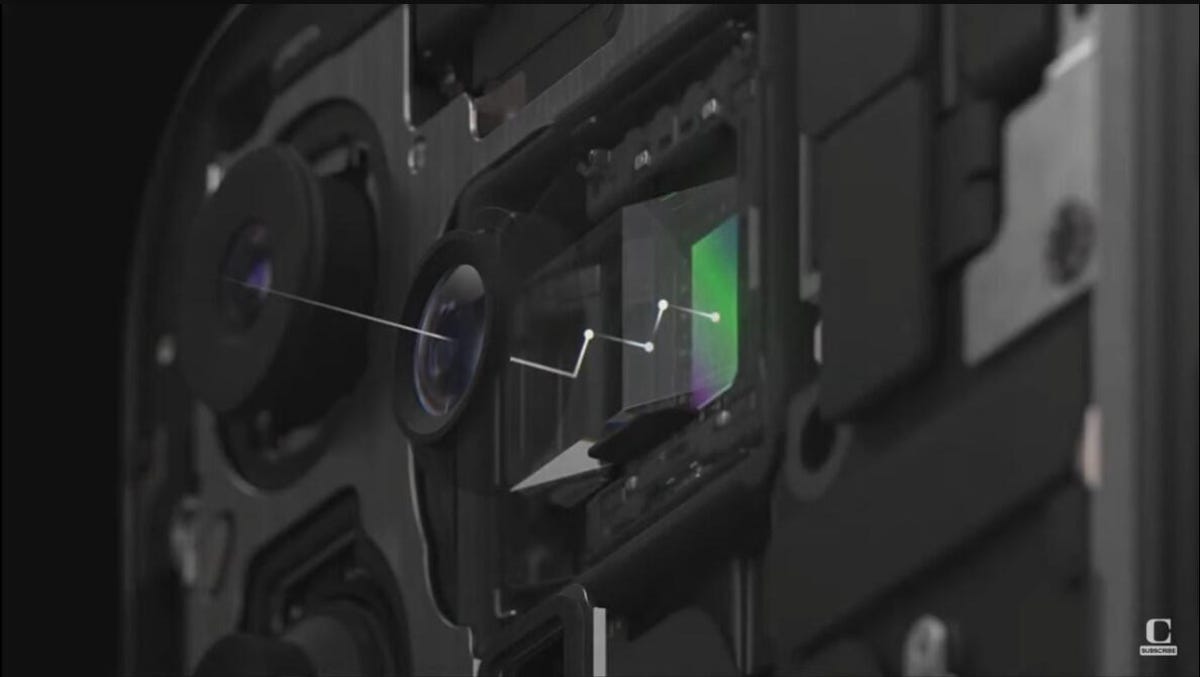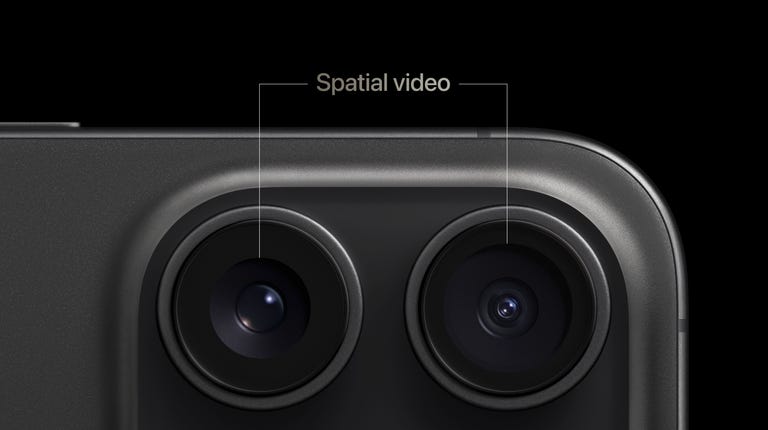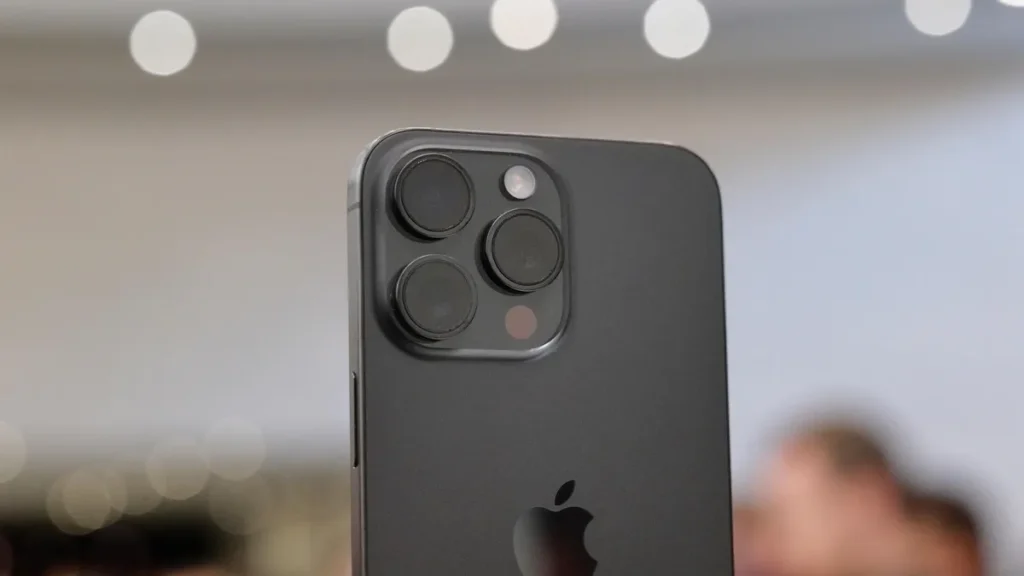iPhone 15 Pro and Pro Max’s hands-on experience: New materials, a faster processor, and better cameras that shoot video for the Apple Vision Pro.
The iPhone 15 Pro and Pro Max made their debut at Apple’s annual fall event on Tuesday. From the moment I picked them up in a hands-on area inside the Steve Jobs Theater, I could tell there were some significant refinements compared with previous Pro models. The iPhone 15 Pro and Pro Max are made with titanium instead of the stainless steel found on last year’s iPhone 14 Pro and 14 Pro Max and, as a result, are noticeably lighter.
In recent years, Apple used its Pro phones to push the envelope with tech advances, while keeping the standard models with the previous year’s tech, likely to reduce costs and incentivize upgrading to the pricier premium models. That’s proved true with the standard iPhone 15 and 15 Plus, which get last year’s 14 Pro perks. The iPhone 15 Pro and Pro Max carry on this tradition, and since rumors of an iPhone 15 Ultra were unfounded, these are Apple’s most advanced phones yet.

The iPhone 15 Pro and Pro Max have slightly rounded edges, which feels better in hand. Mind you I had about 30 minutes to try them out in a very crowded demo room, but the lighter weight and less bulky feel left a positive impression. The new Pros have thinner bezels for slightly more glass on the front screen — which are still 6.1 inches for the iPhone 15 Pro and 6.7 inches for the iPhone 15 Pro Max.
As for colors, the iPhone 15 Pro and Pro Max come in four metallic hues: traditional black and white titanium, as well as a blue titanium and a “natural” titanium with a gray tone.
The iPhone 15 Pro starts at $999 (£999, AU$1,849), while the iPhone 15 Pro Max starts at $1,199 (£1,199, AU$2,199). While the Pro Max is pricier than last year’s $1,099 starting price for the iPhone 14 Pro Max, the new iPhone 15 Pro Max starts at 256GB, double its predecessor’s internal storage.
As was rumored, the iPhone 15 Pro and Pro Max have ditched the Lightning port for USB-C, for data throughput at a speed of 10GB per second (the iPhone 15 and 15 Plus have also switched to USB-C).
READ MORE: Apple announces iPhone 15 with major change. Hello USB-C.
There’s also one more new feature: an action button that replaces the mute switch iPhones have had for years. By default, you can long press to mute or unmute. You can customize it to trigger a number of shortcuts like turning on the flashlight, recording a voice memo or even opening the camera. Once the camera app was open, I used the action button as a physical shutter button to take photos. Reminds me a bit of the Sony Xperia 1 V and its dedicated hardware shutter button.
The iPhone 15 Pro and Pro Max have a 48-megapixel camera with a larger sensor. The photos are 24 megapixels by default, and lidar scanning augments low-light and night photography. The phones also have a 12-megapixel ultrawide camera inherited from last year’s iPhone 14 Pro.
But the big feature this year is better zoom, though only for the larger premium phone. The Pro retains its predecessor’s 3x telephoto camera (equivalent to a 77mm lens), while the Pro Max has a 5x optical zoom (equivalent to a 120mm lens) — a “tetraprism” design that refracts light multiple times to enable more zoom within the iPhone’s compact frame. When I tried the Pro Max’s new telephoto camera out, it was eye opening what a difference 5x made over 3x on the 15 Pro. I was even able to digitally zoom to 25x magnification which is ridiculous for an iPhone.

High-end Android phones, most notably the Samsung Galaxy S series, have had something similar — periscope cameras — for years, though they use a design strategy of stacking lenses within the phone’s frame and using a mirror to angle them out the back of the phone. The Galaxy S23 Ultra, for instance, has a periscope camera capable of 10x optical zoom.
Apple is also trying to appeal to more pro photographers by adding more interstitial zoom steps in the camera app’s interface. With the camera app open, users can tap the 1x zoom button to switch between popular focal lengths — 24mm, 28mm and 35mm — and set one of them as the default focal length when opening the app.
The iPhone 15 Pro and Pro Max cameras will also have expanded video capabilities, like vlog encoding, as well as using the faster throughput speeds on USB-C cables to shoot and instantly transfer photos taken in the maximum sharpness Pro Raw format from your iPhone 15 Pro to a Mac. It can also record video in ProRes format directly to an external storage drive.
The iPhone 15 Pro and Pro Max get a forward-looking feature in spatial video capture, using multiple cameras to take videos with depth that can be watched on an Apple Vision Pro AR/VR headset. Sadly, the feature won’t be out until later this year.

Faster processor, more gaming
The iPhone 15 Pro and Pro Max launch with the A17 Pro Bionic processor, a 3-nanometer chip that has 19 billion transistors for faster performance. The new six-core GPU is up to 20% faster than the A16’s GPU and enables ray tracing.
Apple has pushed mobile gaming in its iPhone launches for many years, and this year was no exception, as developers from Ubisoft and Capcom promoted full console versions for the iPhone of Assassin’s Creed Mirage as well as Resident Evil 8 and Resident Evil 4 Remake, respectively. (The latter two are confirmed to be coming to the iPhone 15 Pro later this year, with Assassin’s Creed coming in early 2024.) Hideo Kojima’s Death Stranding is also coming to the iPhone 15 Pro.
iPhone 15 Pro will launch with iOS 17 (which will be available publicly when the phones launch on Sept. 22), which introduces StandBy Mode that was previewed at WWDC 2023. It basically transitions the phone to a more passive mode at night, displaying the time in oversized type and app widgets. It activates when you turn the phone sideways, but it’s meant to be used when mounting the phone on a MagSafe stand, looking like the world’s most expensive alarm clock.
COURTESY: CNET


